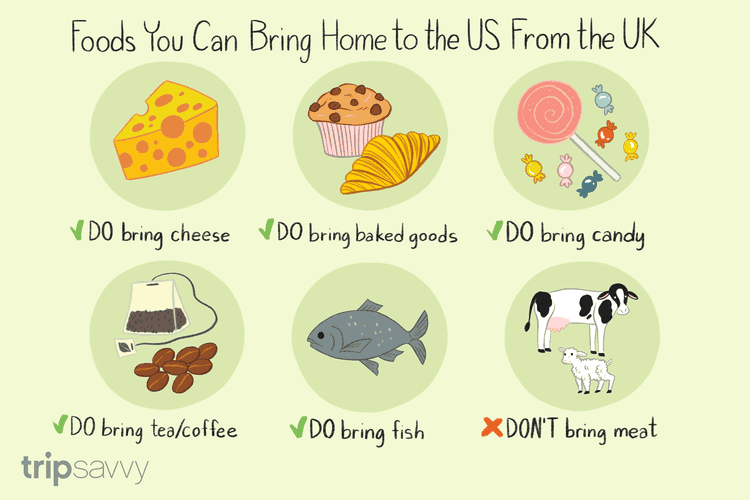Bringing Food Home from the UK
Don’t let worries about what you can and cannot bring home to the US stop you from enjoying the many markets, Christmas markets, and farmers’ markets around the UK. US Customs and Border Protection, a department of Homeland Security, has clear regulations about what foods you can and cannot bring home to the USA for your personal use.
As long as you understand the rules and are diligent about declaring any foods you’re carrying when you go through customs, you shouldn’t have any issues bringing home most of the delectable goodies you’re likely to buy.
Do remember, however, that if you bring in food products, you really must declare them. Regulations change frequently, and an unforeseen situation could alter what is permissible. Moreover, if you fail to declare the foods you are bringing home, you could face a fine of up to £10,000.
Yes You Can
However, if you’ve always assumed that anything not canned, bottled, or sealed in an airtight container was forbidden, you’re probably in for a surprise. Did you know that you can bring home these delicious items?
- Cheese – The UK boasts more regional cheeses than France, with varieties from Cornish Yarg to Welsh Caerphilly. Most hard or semi-soft cheeses, including cheddar from Cheddar and Stilton, can be brought home. However, be considerate of your fellow passengers and pack cheese in your checked baggage.
- Baked Goods – The classic red tartan tin of Scottish shortbread is a beloved souvenir. You can bring home most baked goods, provided they do not contain meat or poultry. Items like Scottish oatcakes, scones, and special seasonal treats are all allowed.
- Candy and Confectionery – Delightful regional treats, such as Northern Irish Yellow Man, are great choices to take home.
- Tea – Loose tea or tea bags are perfectly acceptable to bring back.
- Coffee – Roasted or unroasted coffee, whether beans or ground, is allowed as long as no pulp is attached.
- Fish – You can bring various fish products, including fresh, frozen, dried, or smoked, for personal use.
Find out more
For the most up-to-date information regarding permitted food items, visit the US CBP information page: Travelers bringing food into the U.S. for personal use.
Maybe – But Is It Really Worth It?
Most fresh fruits and vegetables are permitted entry into the USA from the United Kingdom. However, before you decide to pack your carry-on with fruits or vegetables, it is essential to acknowledge one critical fact:
All fresh fruit and vegetables brought into the USA must be inspected for diseases and insects by a CBP Agriculture Specialist or Officer.
Consequently, if you are intent on bringing fresh produce home, you need to check the USDA Animal and Plant Health Inspection Service Fruits and Vegetables Import Requirements beforehand. Even if specific items are allowed, you must have them inspected upon arrival, and some items may require an import permit.
Nope!
Indeed, nearly all fresh, frozen, dried, or cooked meats and poultry products are not permitted into the US without special licenses and detailed inspections. This includes any canned dishes and sauces containing meat. Therefore, if you manage to board with a Cornish Pasty intact, ensure you consume it before your flight lands, or it will likely be discarded.
Don’t Get Caught Out
Be aware that meat and poultry can be hidden in many food products. Hence, it is crucial to read the ingredients of processed foods before you pack them. If an item contains animal derivatives, it must be declared. If customs identifies such items that haven’t been declared, you could face penalties.
Moreover, regulations can differ between countries and may change frequently. To stay informed, check the US Customs and Border Protection web page about bringing food into the USA for personal use.





